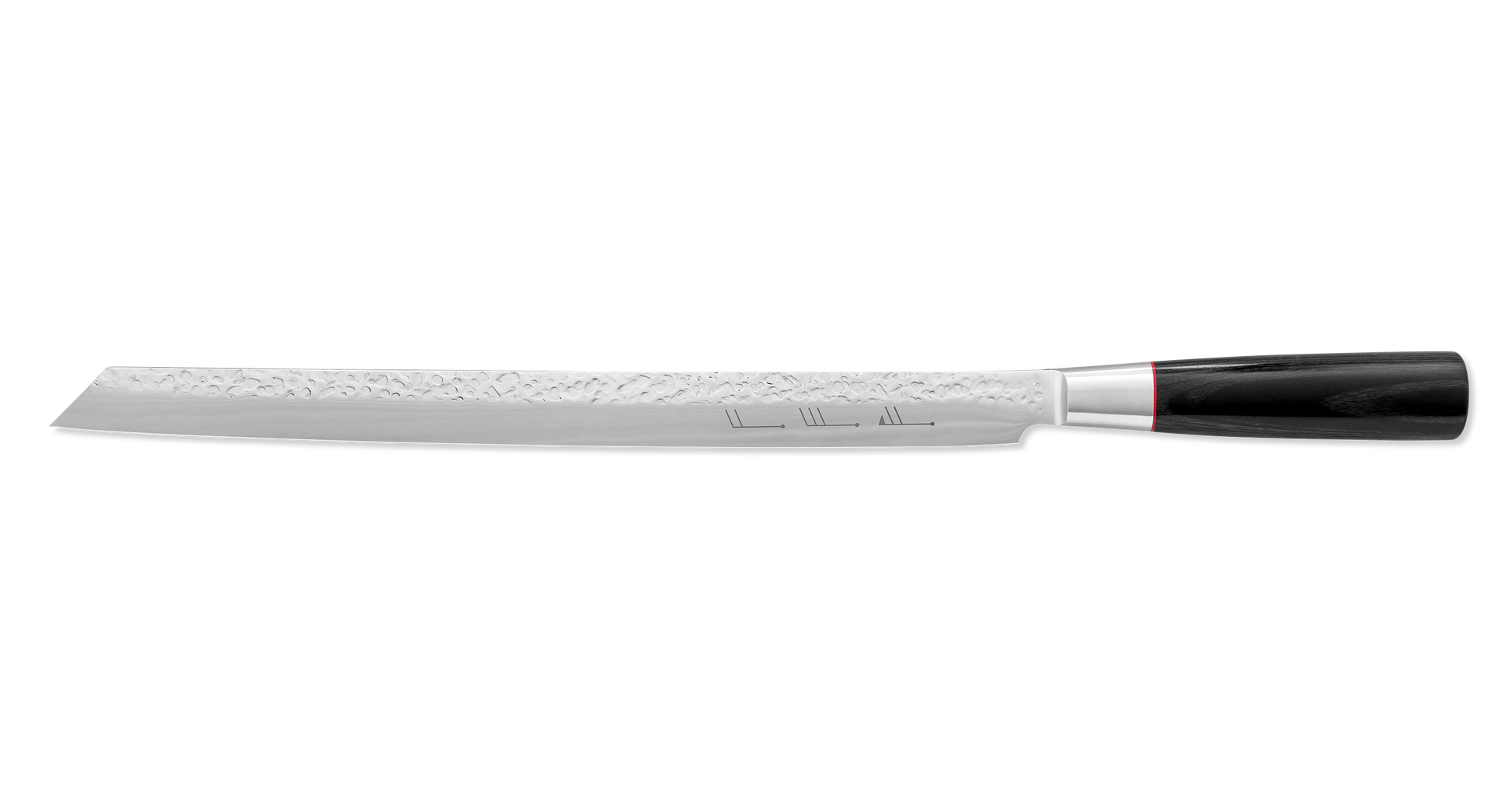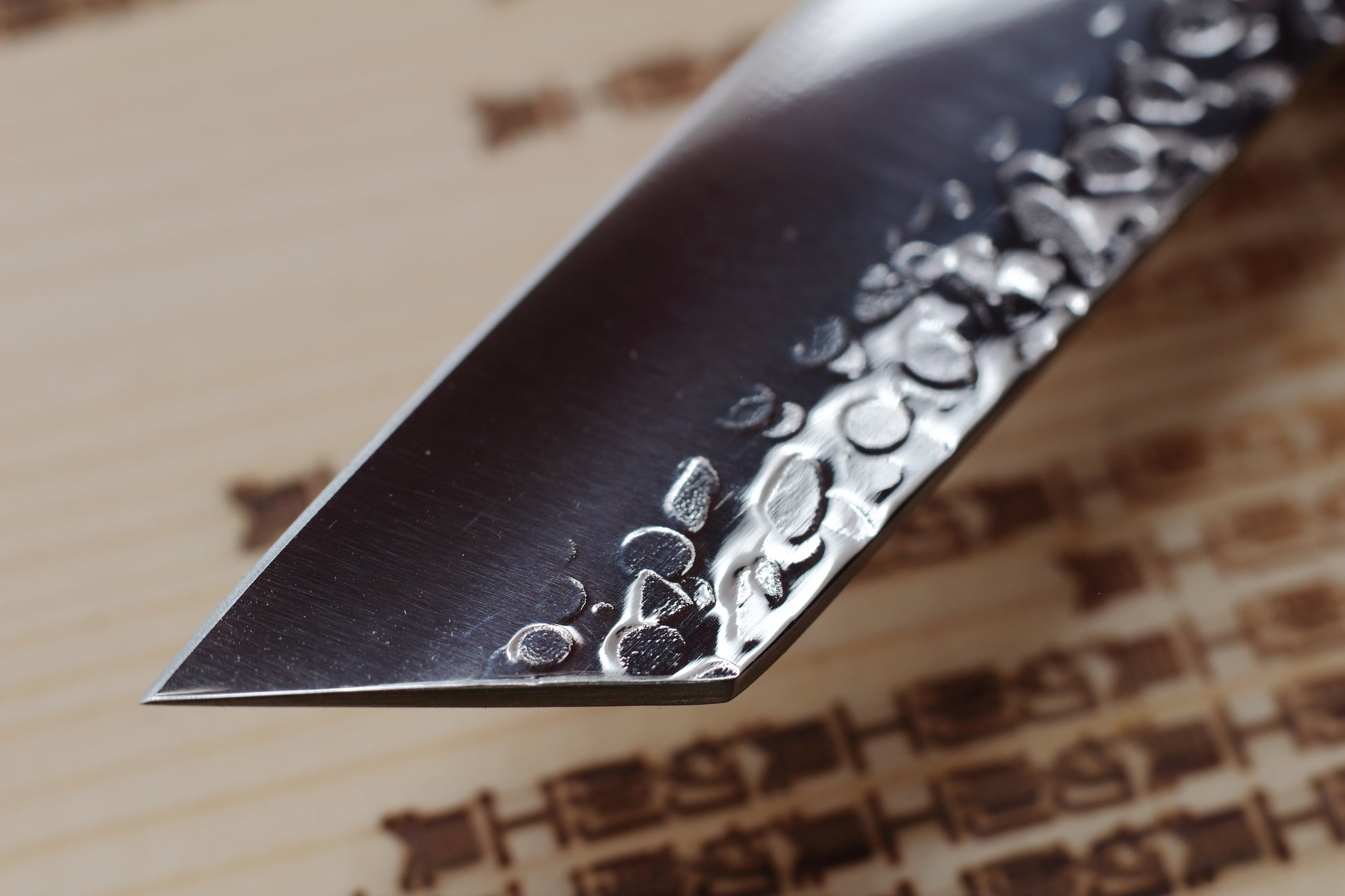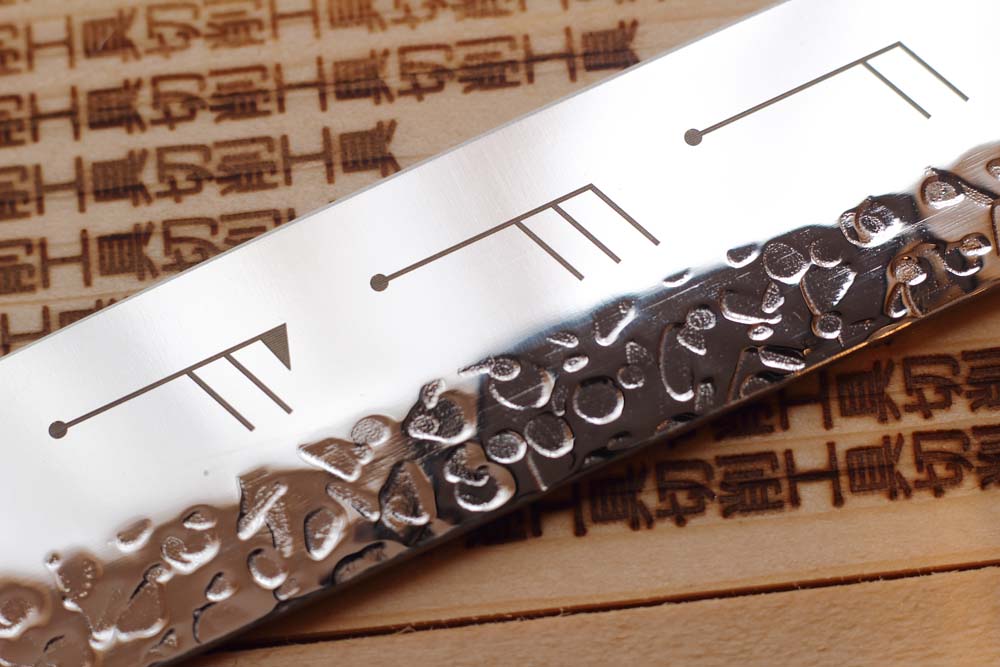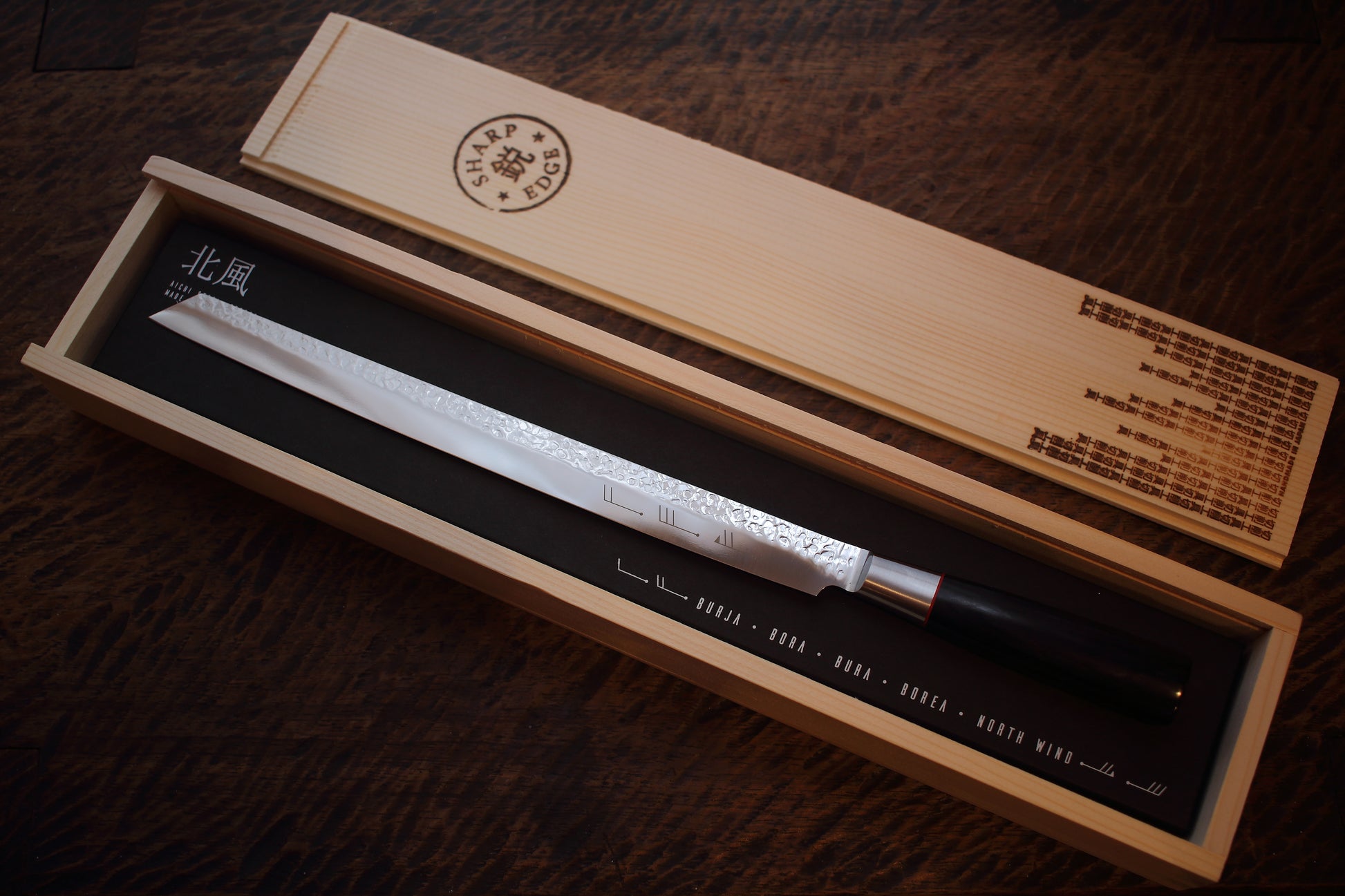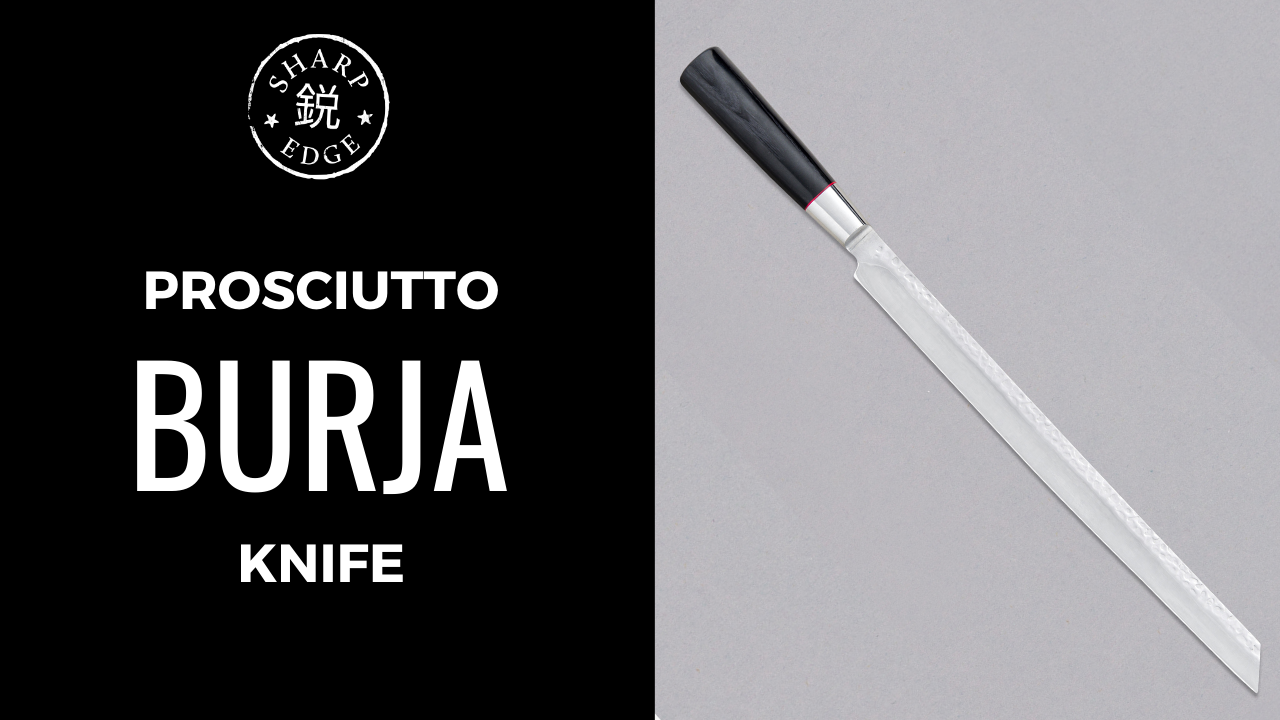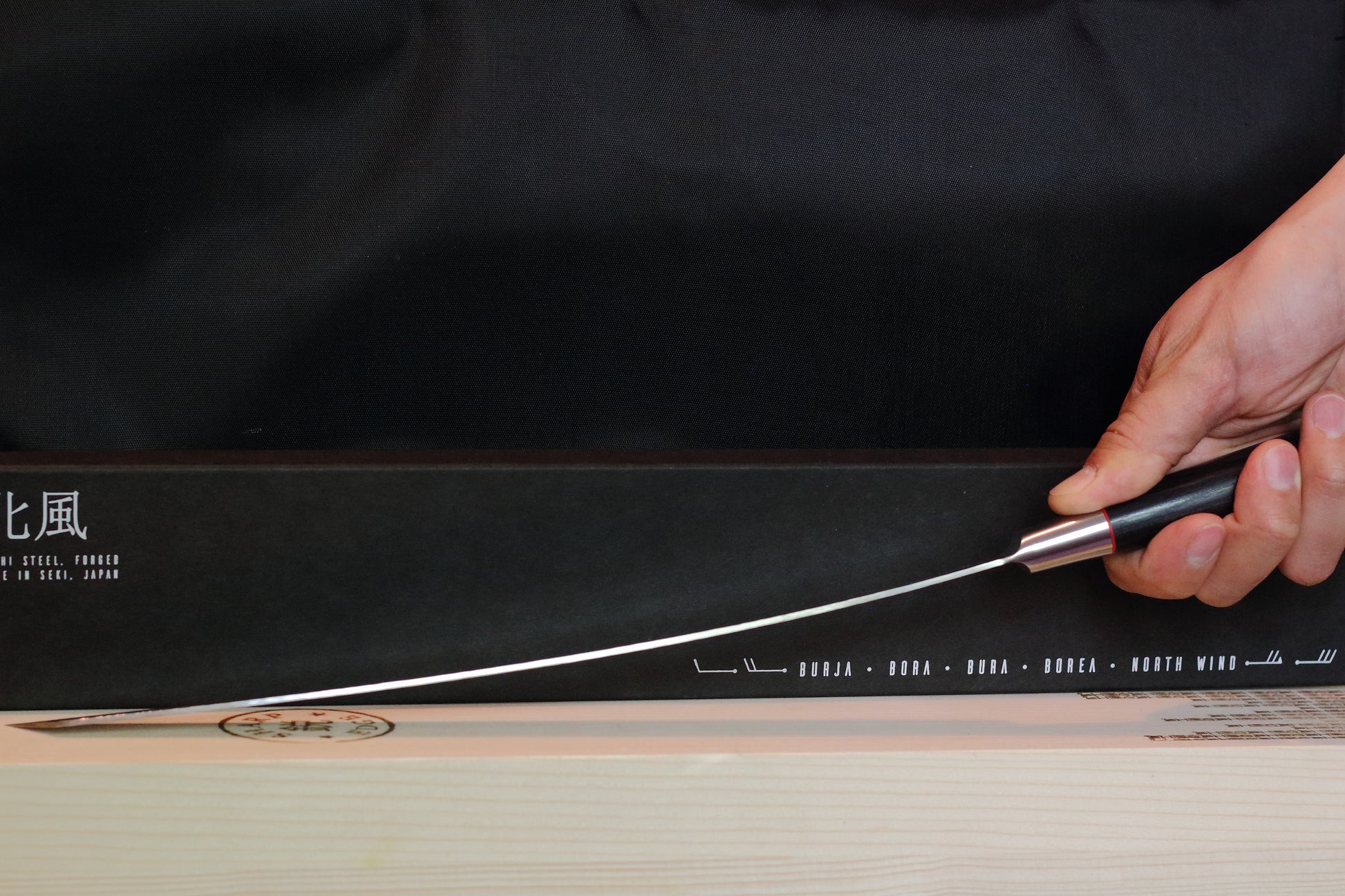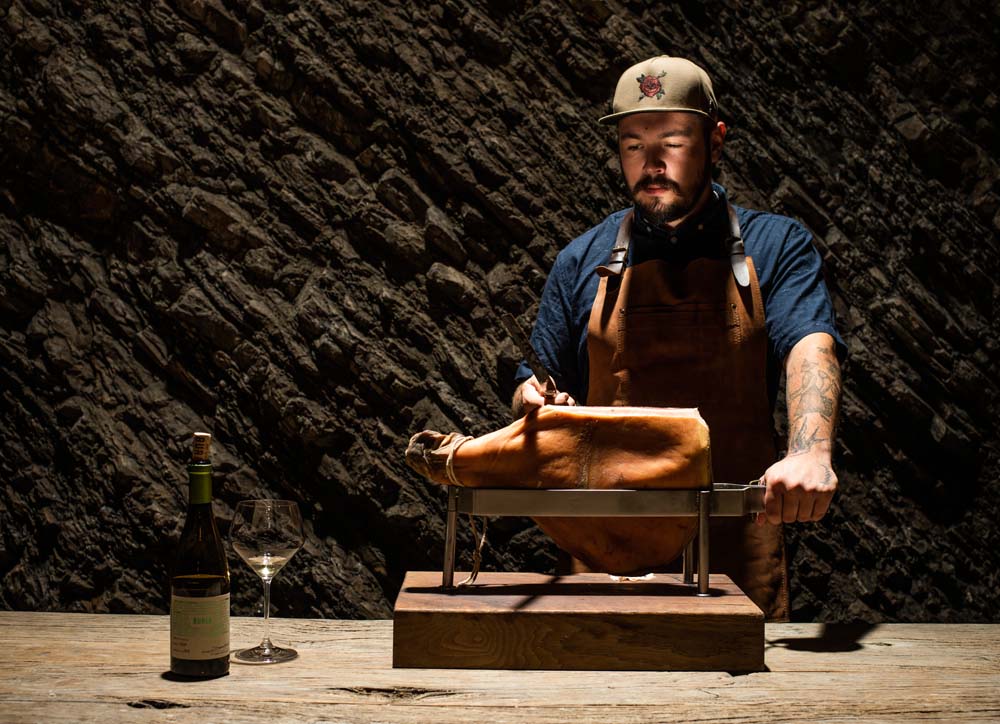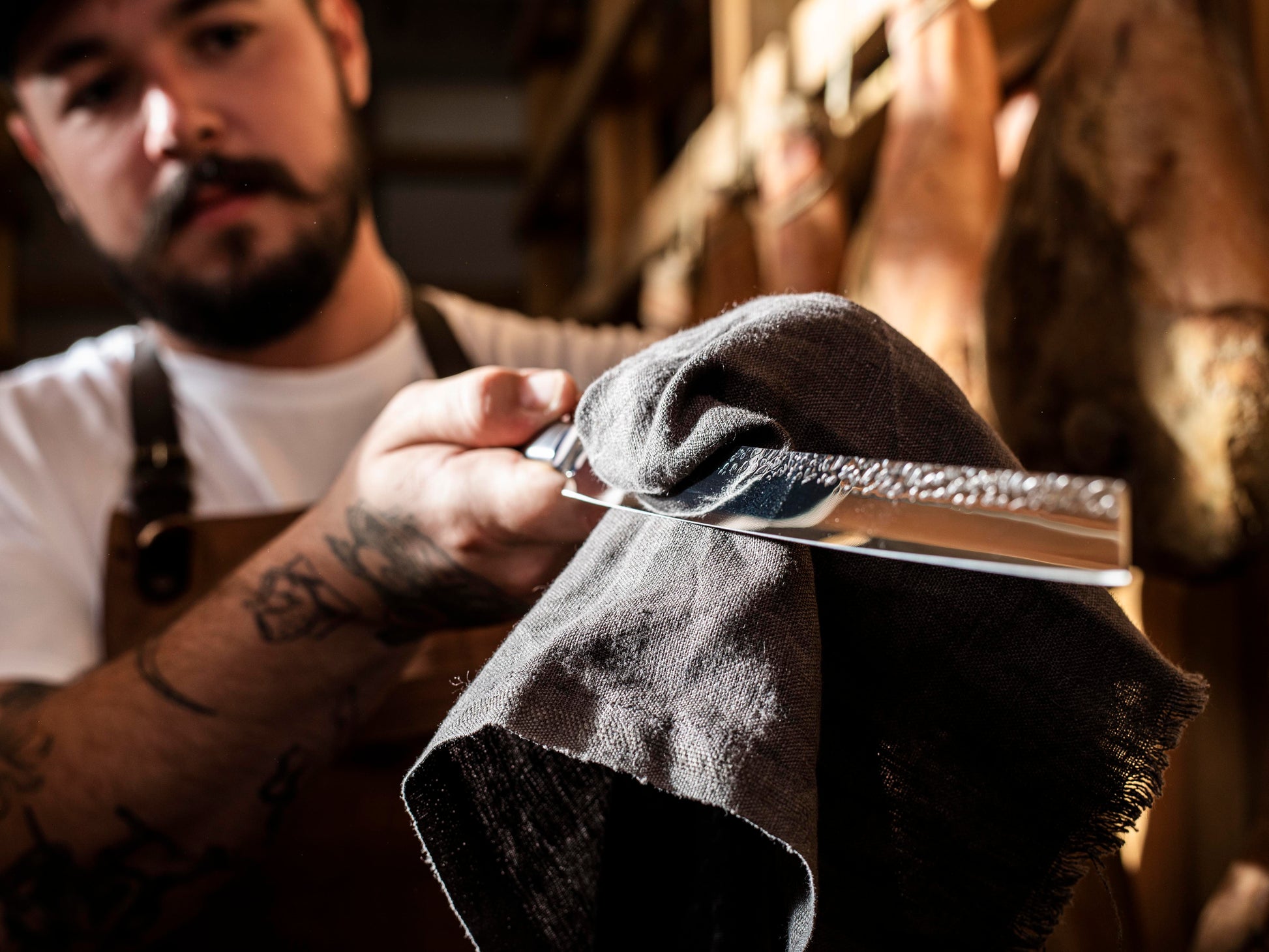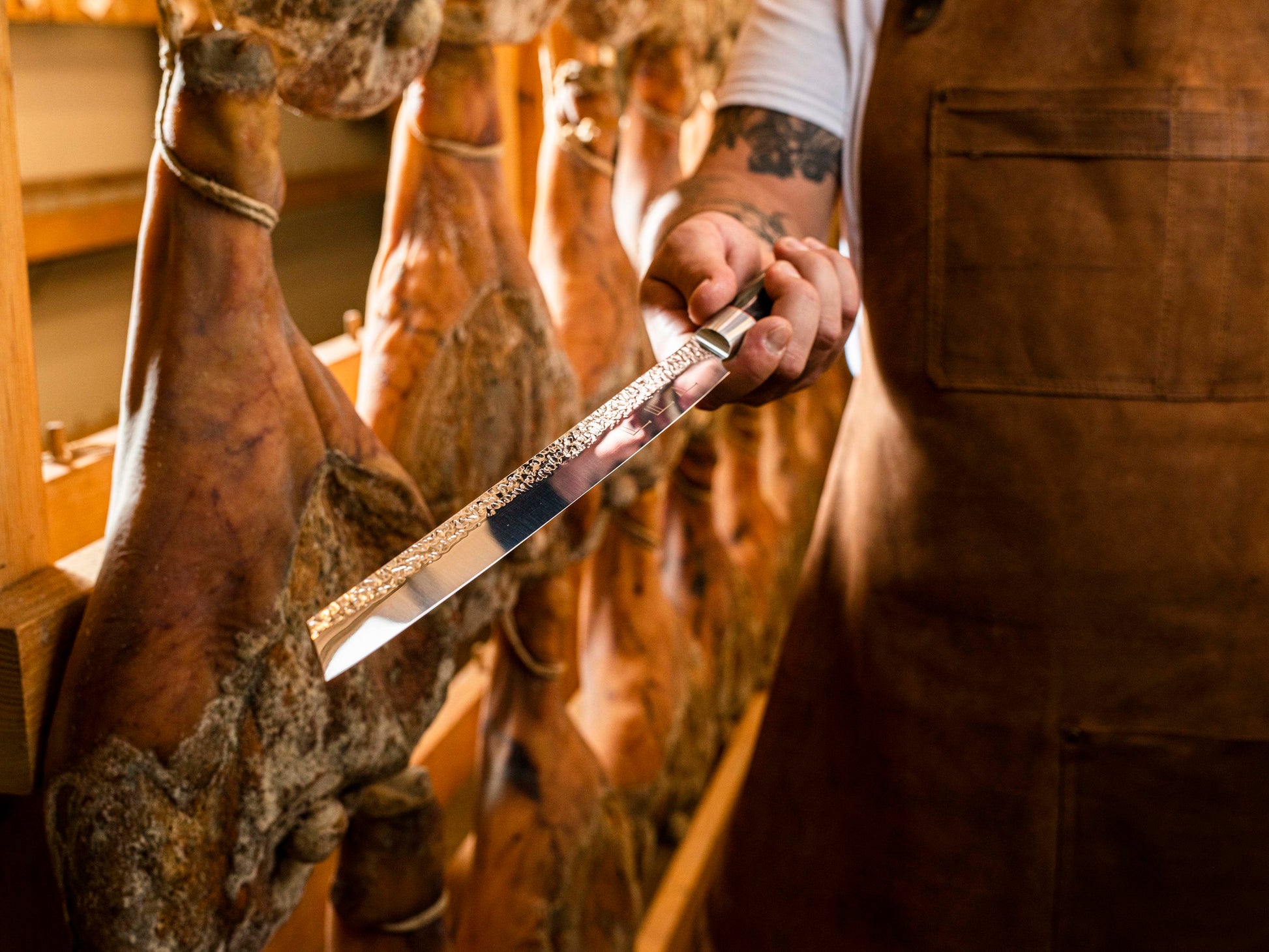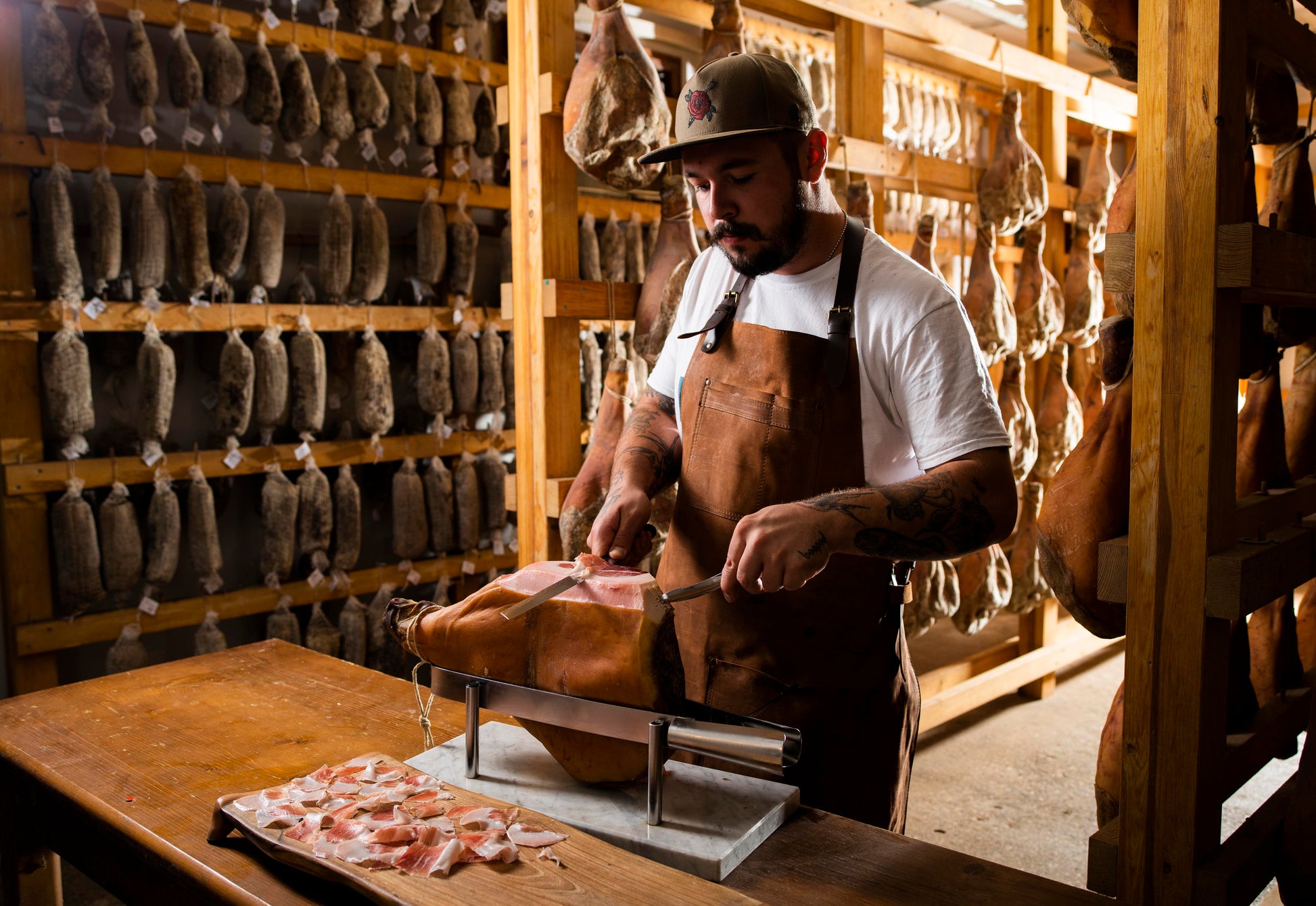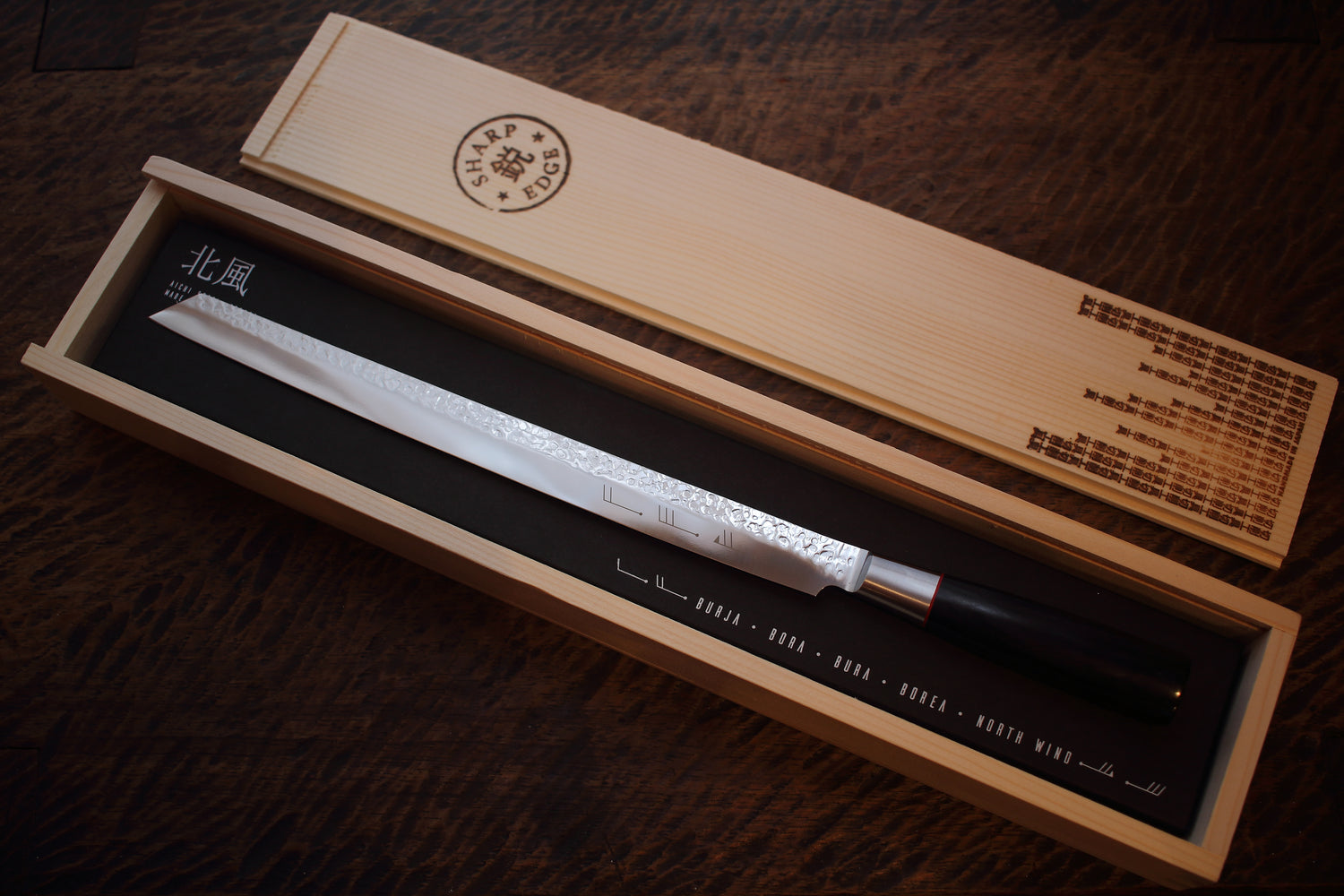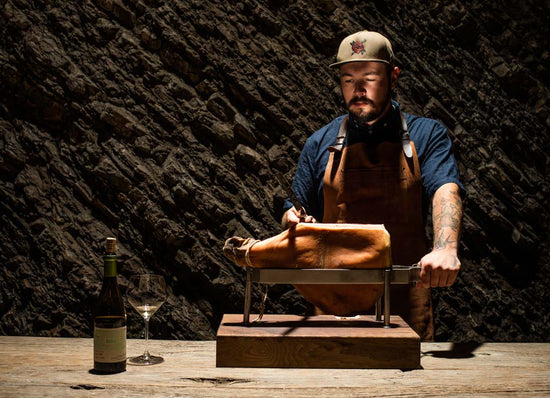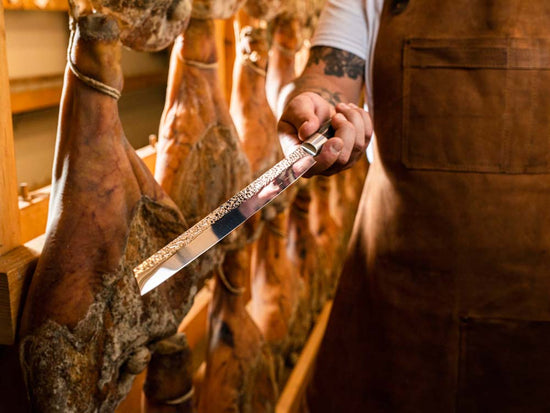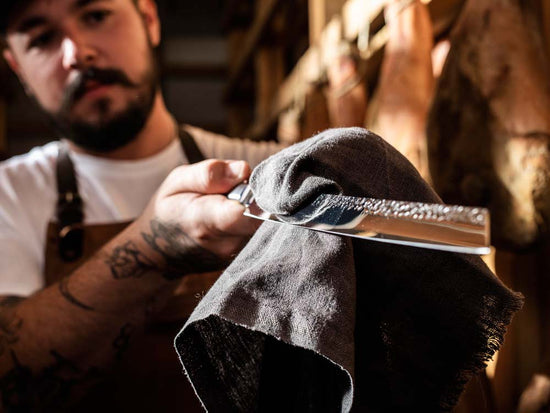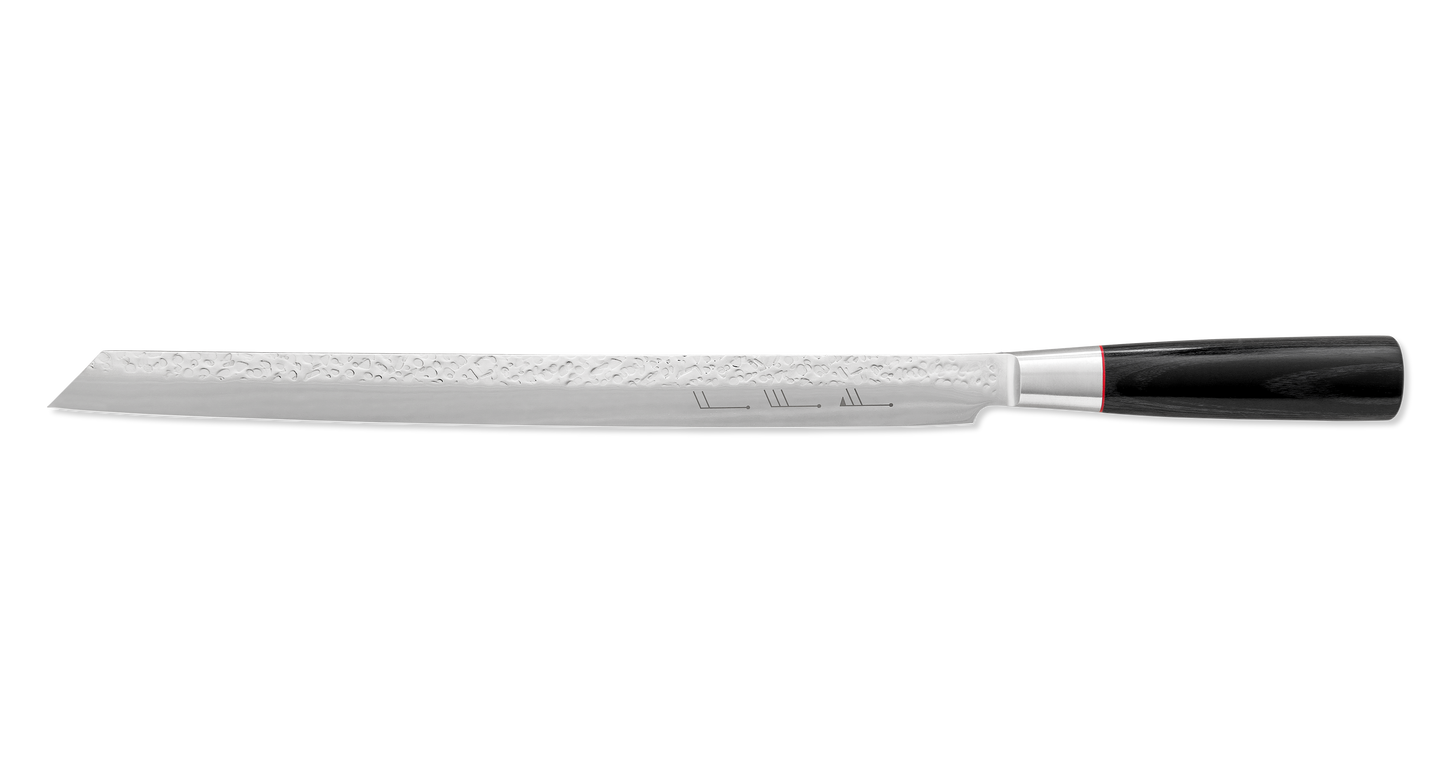
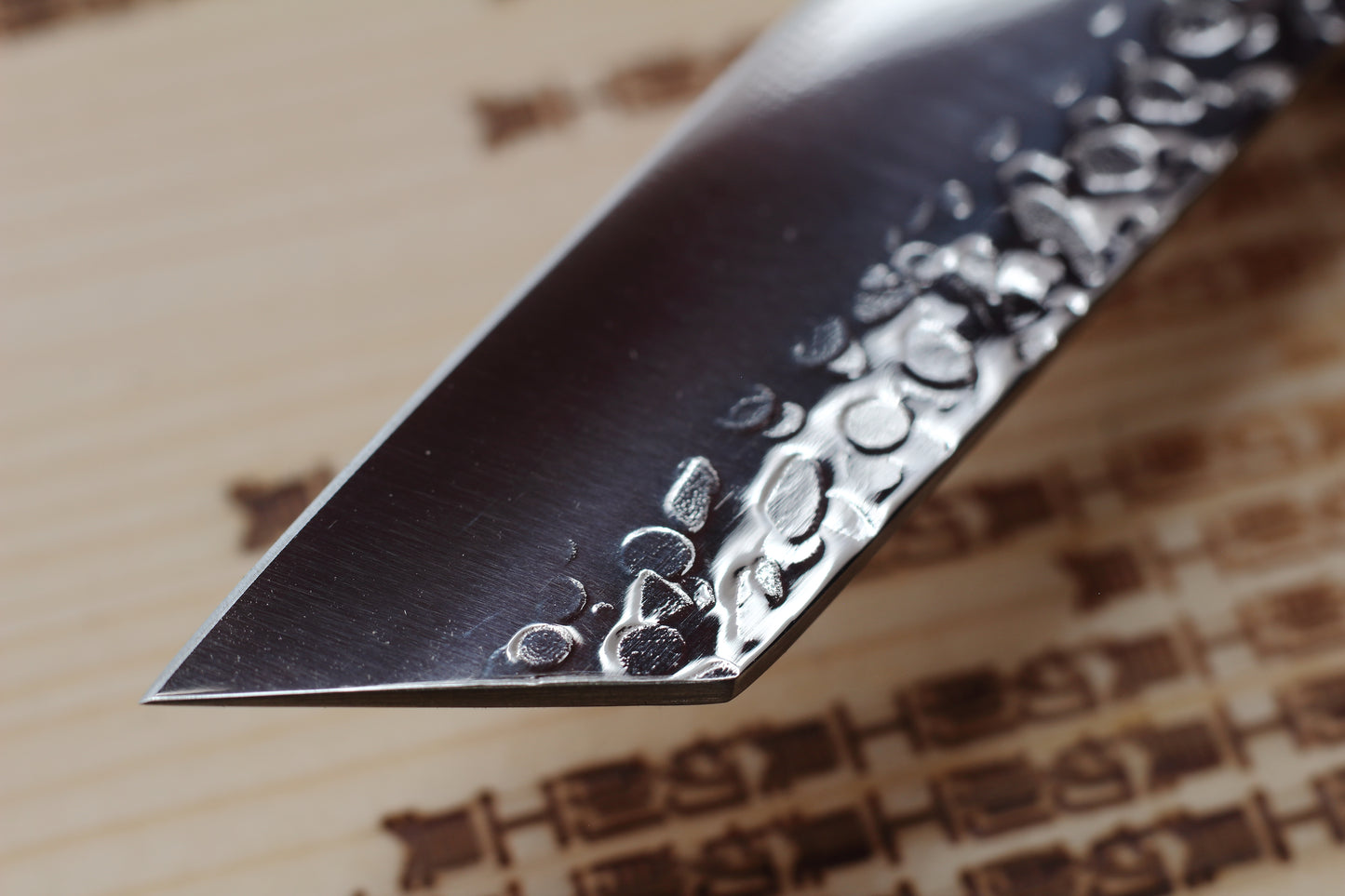
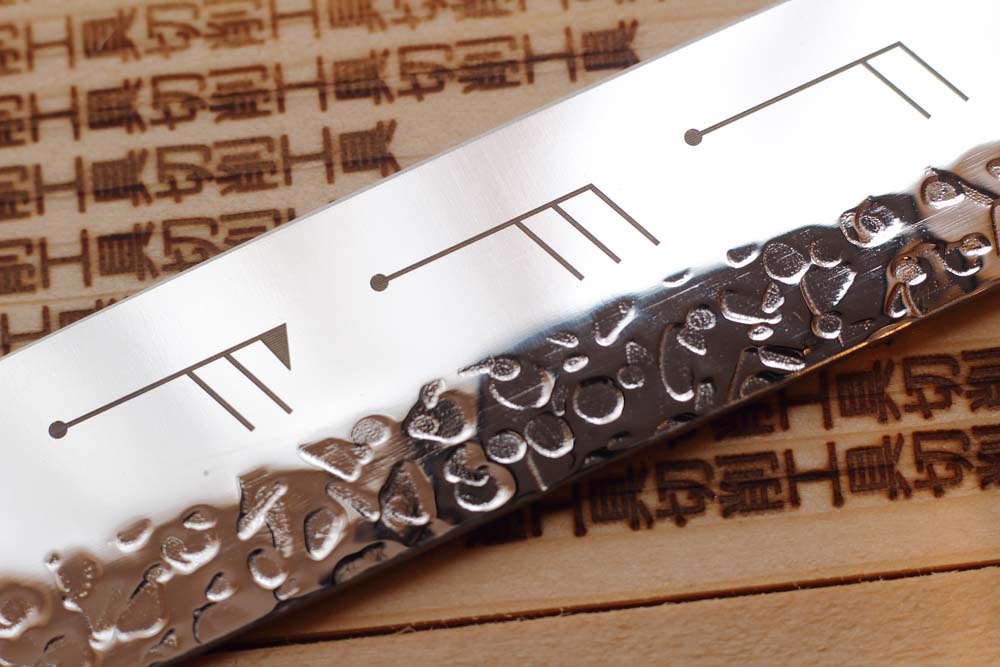
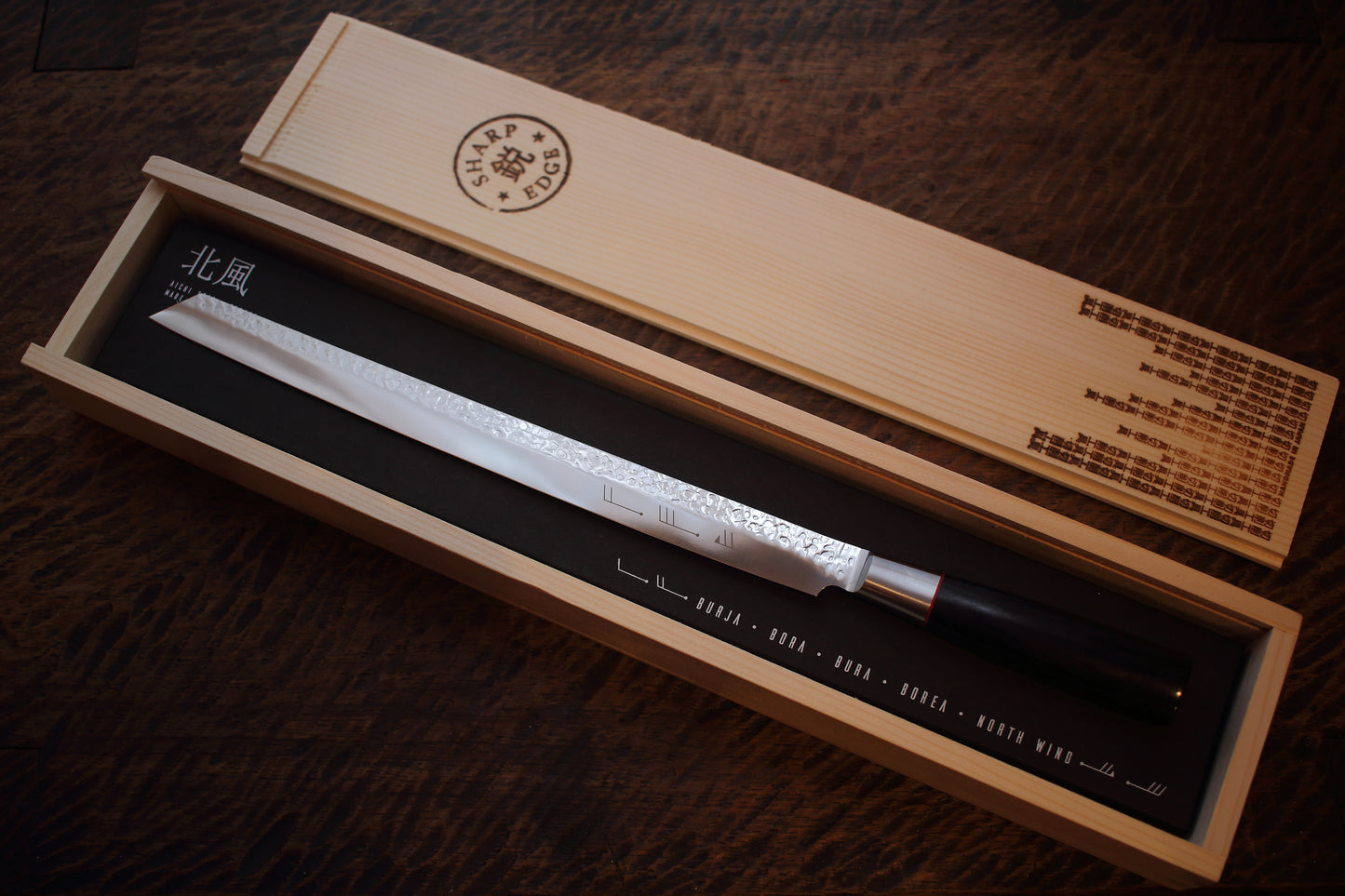
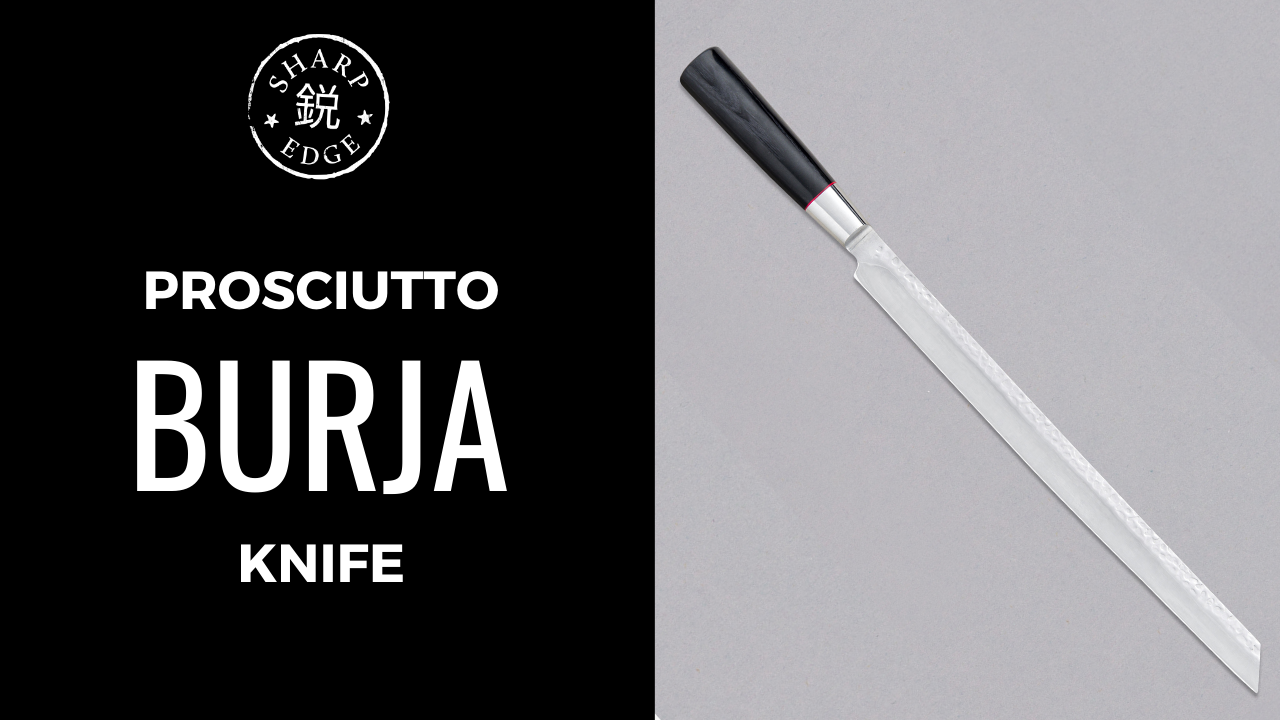
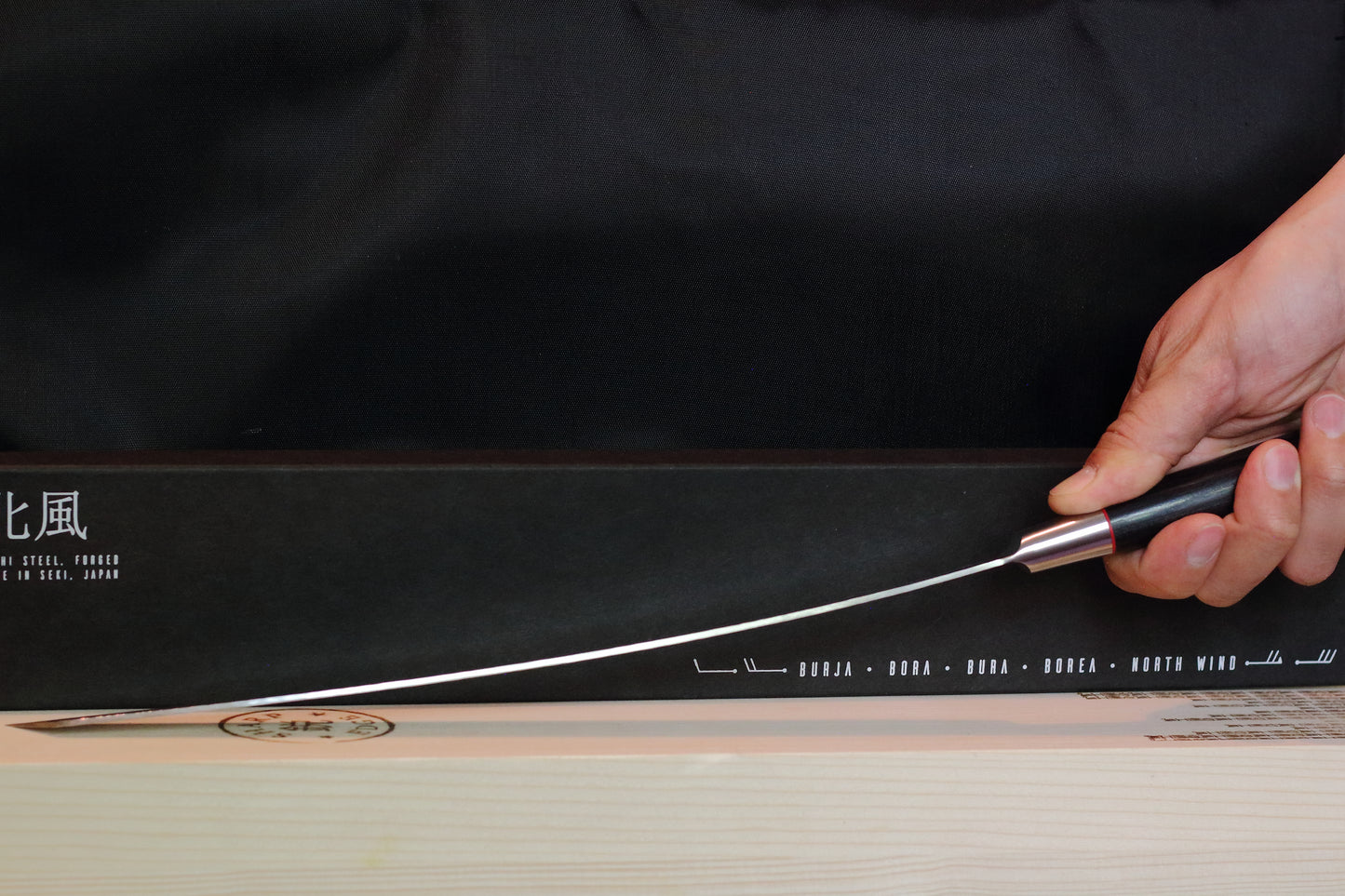
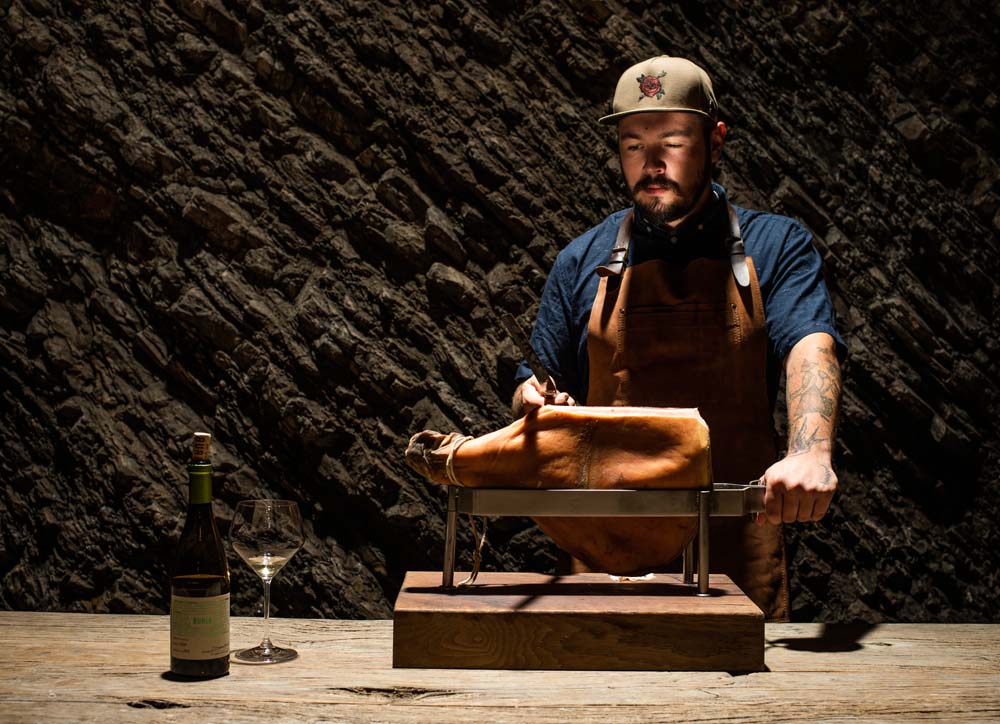
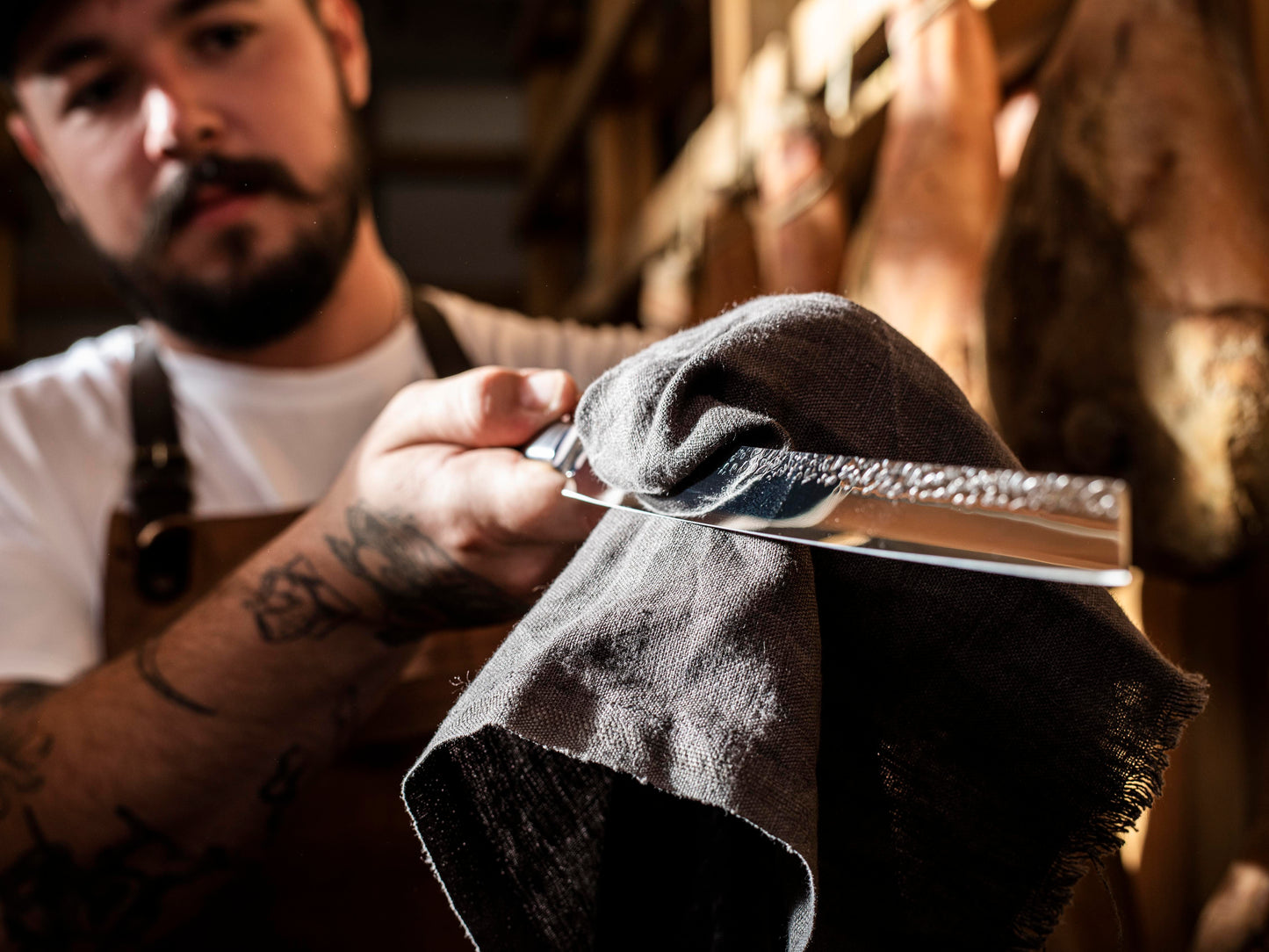
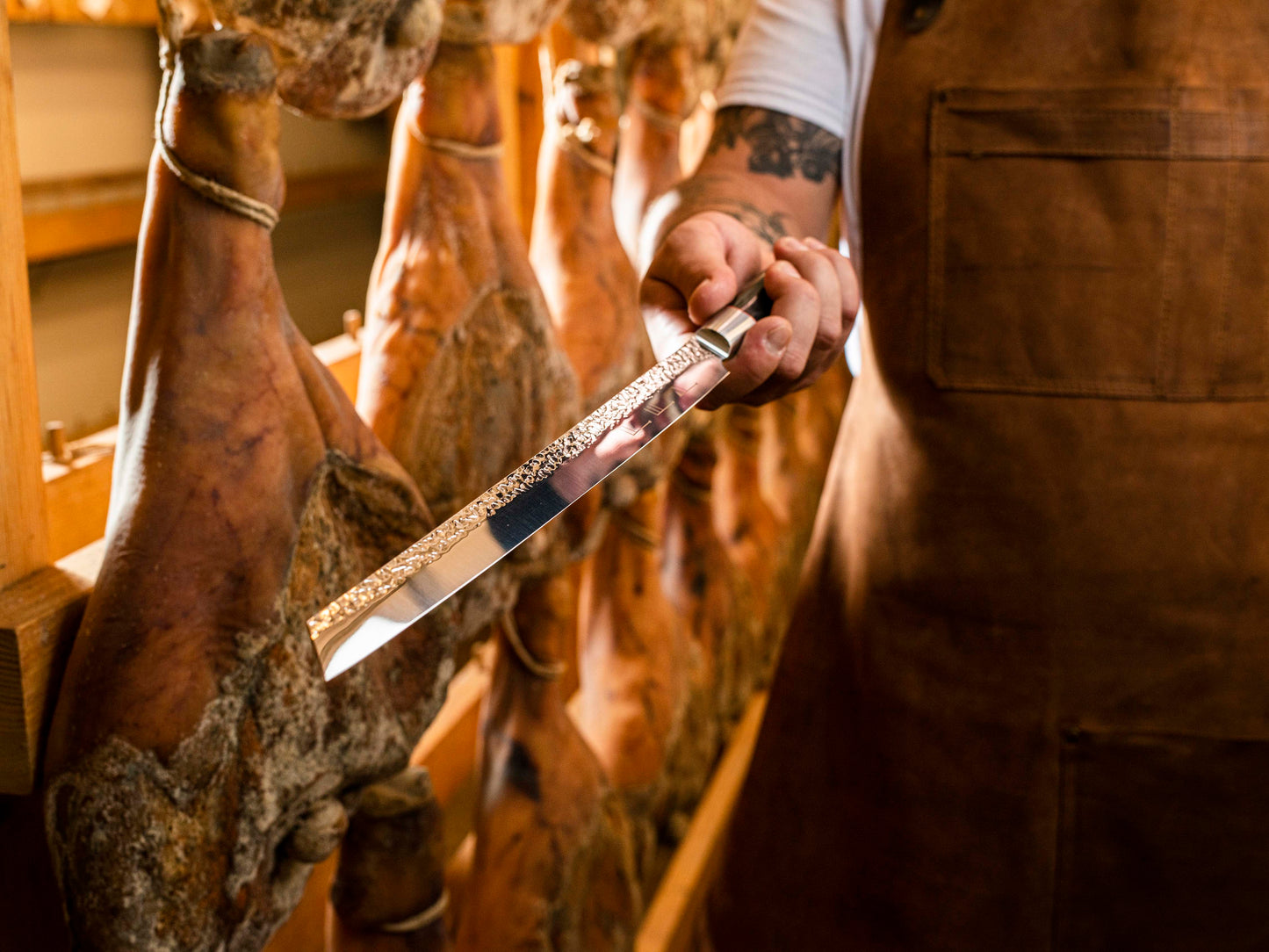
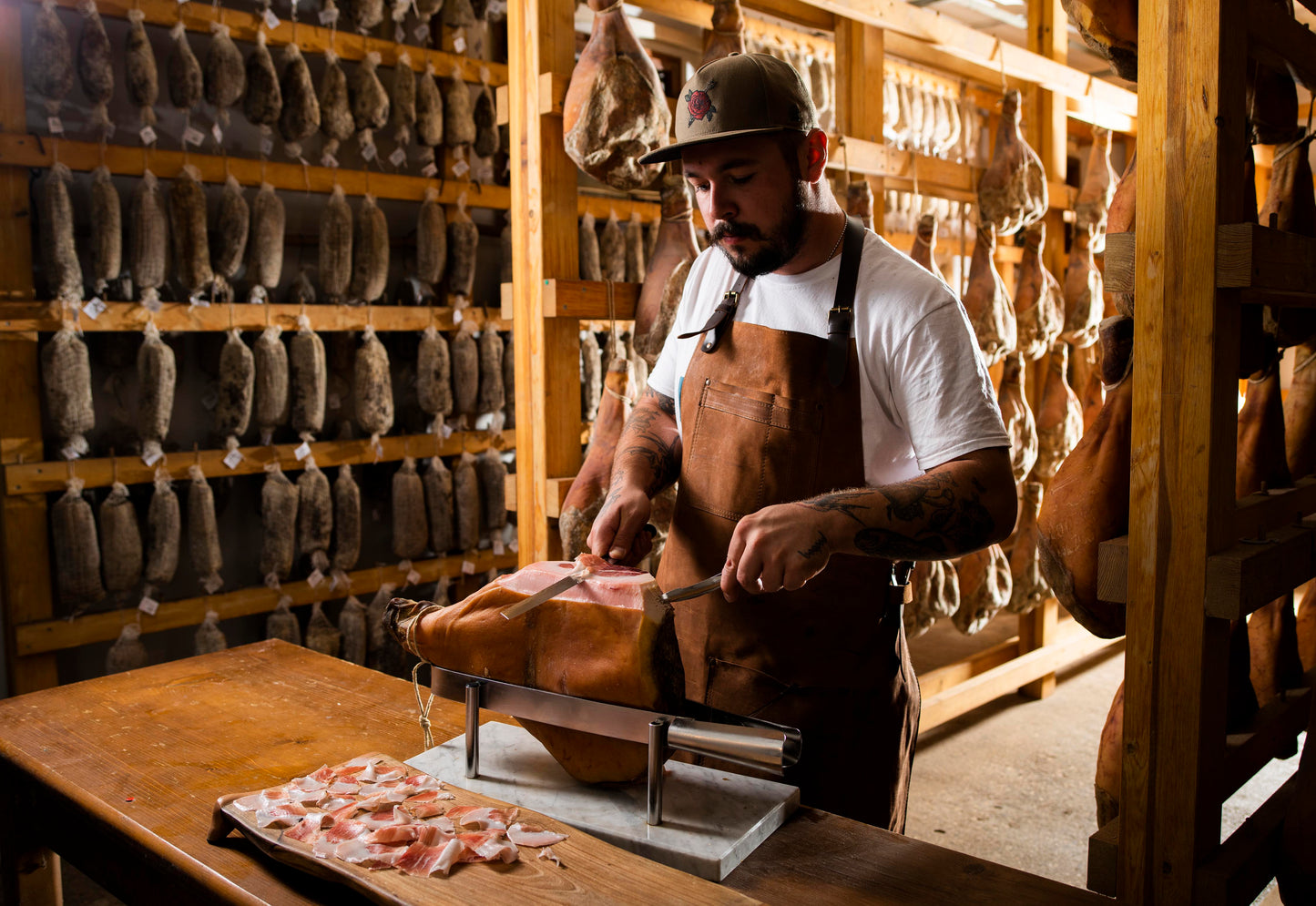
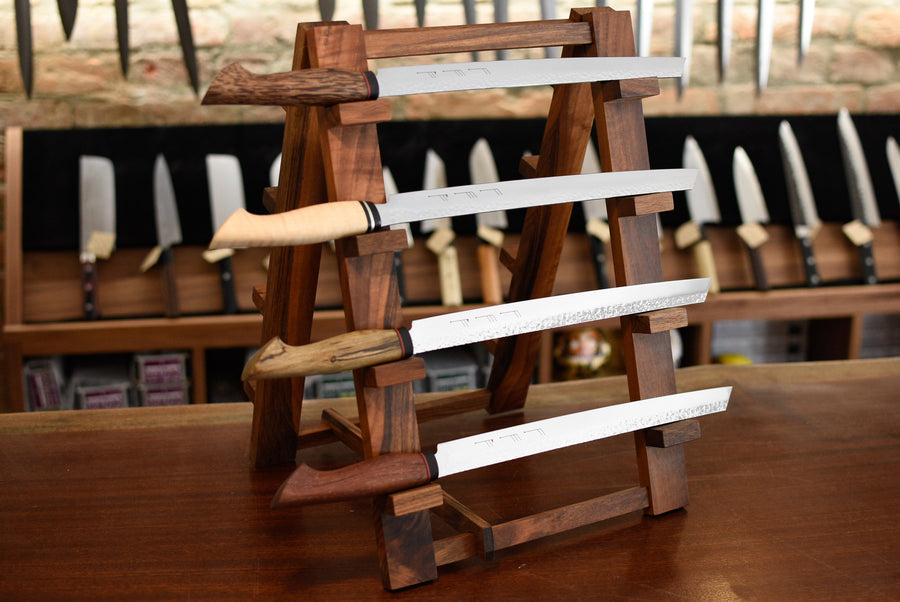
Custom handles available
The handle is an integral part of any knife. With our Burja knife we want to keep things a bit more funky by experimenting with unique, custom-made handles. While the standard version was fitted the black pakka wood handle, custom handles are also available, inspired by designers, artists and woodworkers that we got to know along the way. If you would like your Burja with a unique handle, please contact us!
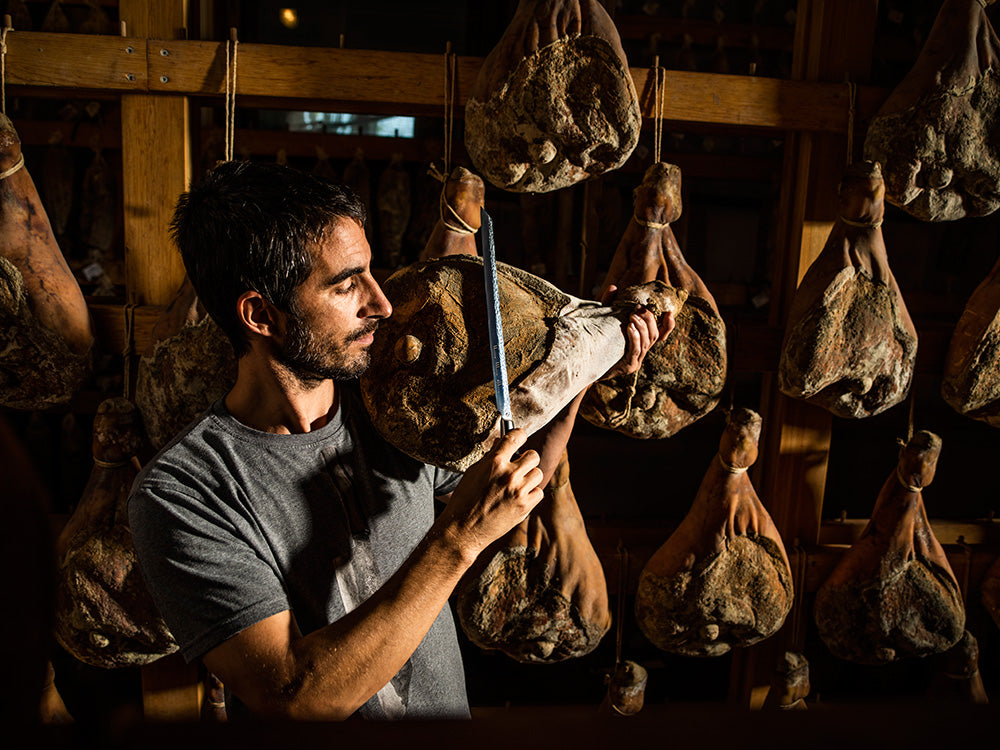
Burja knife is a combination of the rich culinary tradition of prosciutto ham with the Japanese tradition of forging knives. Since Japanese blacksmiths are the best blacksmiths in the world, possessing centuries of knowledge and experience of forging steel, it made perfect sense to make our prosciutto knife in Japan. From idea to design, after many conversations with knife makers, trial&errors, finding the right steel and handles, many sliced (and eaten) prosciuttos, visits to Japan, the process finally ended after a good two years.
Cutting a perfectly aged leg of prosciutto with our Burja knife
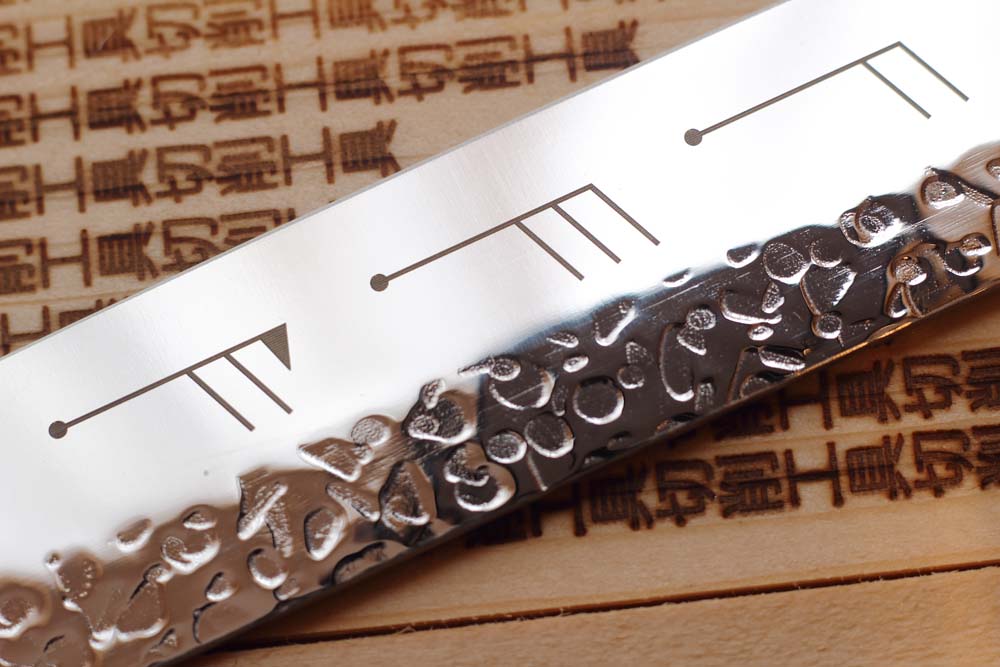
What does Burja mean?
Burja is a Slovenian name of the local wind, in English known under the name Bora. Burja wind is typical for the Adriatic region. It is a cold, dry, strong and gusty northeast wind without which no prosciutto would ever be produced, no matter where in the world it is dried. With all the characteristics, Burja immediately felt like the perfect name for our prosciutto knife. Three engraved symbols can be seen on the left side of the blade. These symbols are called wind barbs, they indicate wind direction and wind speed. The three engraved wind barbs represent Burja wind with three different wind speeds, as Burja is a gusty and very strong wind.
The Ethos of Burja knife
The invisible presence of the wind, this great architect of nature who bends mighty trees, invigorates sea waves and creates magical dunes, is also a key component of some of the most distinctive flavors that have accompanied us for millennia. Many times when we look at the beautiful landscapes created by the wind, or at the delicious plates of wind-dried delicacies that melt in your mouth, we are reminded of this humble but undisputed king of natural beauty. Prosciutto makers don't forget to mention their beloved wind - without it, they wouldn't be able to serve their dried delicacies. It is the sharpness of the northeast wind that cuts through the pores of the meat and slowly, with precision, squeezes out the juices and dries the meat until we can call it prosciutto crudo.
Homo Habilis was the first to use (stone) knives as tools for preparing and sharing food with others. Today, the knife still defines the essence of modern humans, but has changed dramatically since its stone beginnings. The prosciutto knife embodies this ancient essence of a rudimentary knife when we cut a dried piece of meat and share it with friends.
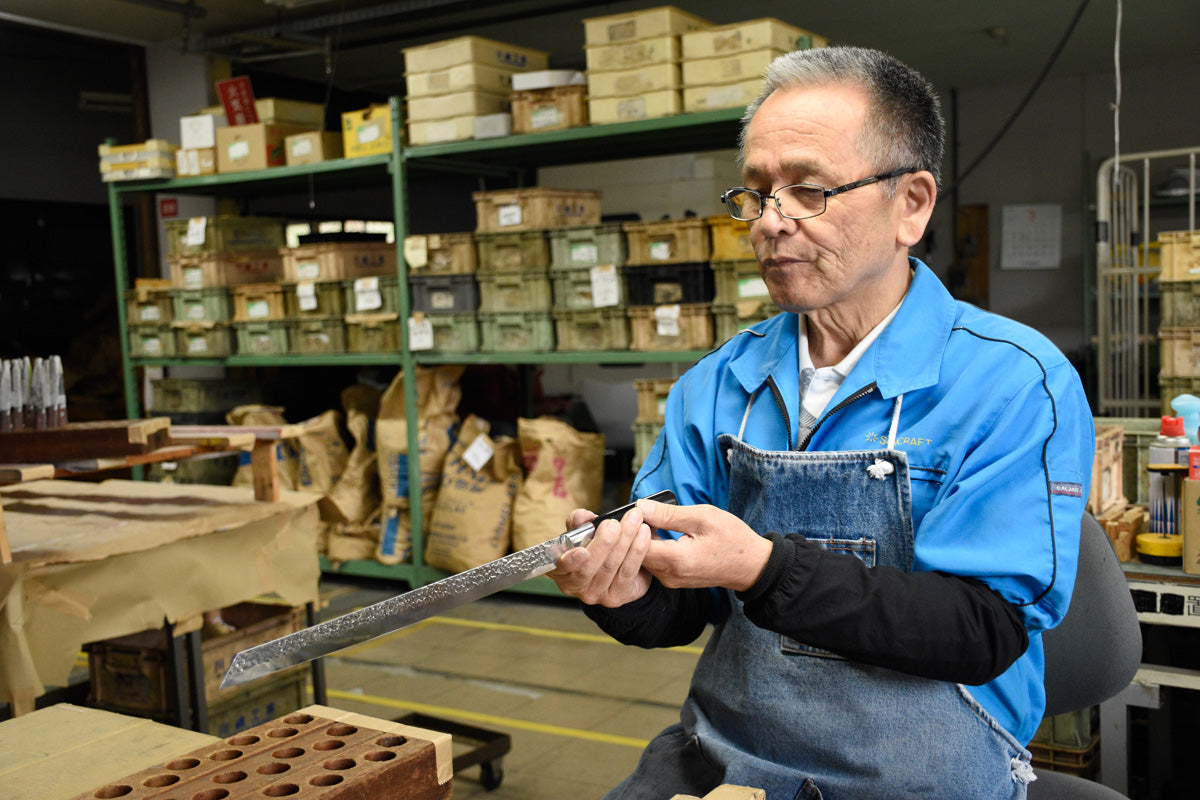
Handmade in Japan
Our knives are forged by the Japanese knifemaker Suncraft, a family company spanning four generations and specializing in the production of kitchen tools. The smithy was founded in 1948 and is located in a thriving manufacturing area of Seki in Gifu prefecture, where steelwork dates back to the times of the Samurai warriors.
-
Order
Become a resellerIf you own a brick&mortar or an e-commerce retail shop and would like to become a dealer/reseller by adding a selection of our knives, please email us.
-
Maintenance
Sharpening & knife care tipsWith proper maintenance, Japanese kitchen knives will last a lifetime!

